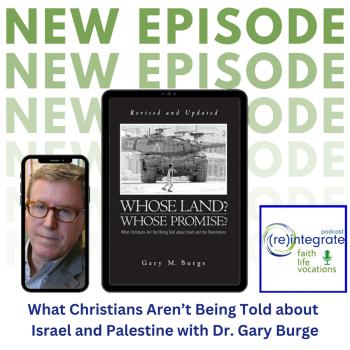Many churches have annual Missions Conferences. For a week, we concentrate on overseas missionaries, highlighting their good work of proclaiming the gospel to those in foreign lands. And with this in mind, our sermons often look at the life of Paul the Apostle—the consummate model of the traveling missionary. Certainly, Paul is the epitome of the Great Commission to “Go and make disciples” (Matthew 28:19-20). And in light of this, we are encouraged to contemplate if God is calling us to go as well. We are to ask, “Am I called to overseas missions too?”
But when I read about Paul’s missionary journeys, what strikes me is how he does not call those to whom he preaches and ministers to become traveling missionaries like him. He seems to actually expect most of them to live normal lives right where God has placed them, and to be missionaries right there. In fact, at one point in his first letter to the Corinthians, he says, “Let each person lead the life that the Lord has assigned to him, and to which God has called him. This is my rule in all the churches…So, brothers, in whatever condition each was called, there let him remain with God” (see 1 Corinthians 7:17-24).
While God calls some to go like Paul, he calls most to stay.
Paul’s method of operation was this: He and his companions would go from town to town and set up shop there making tents, like he did in Corinth in Acts 18:3. And, “as was his custom,” he’d go into the synagogue of that town on the Sabbath days where “he reasoned with them from the Scriptures, explaining and proving that it was necessary for the Christ to suffer and to rise from the dead.” This is what he did in Thessalonica (see Acts 17:1-3).
So when he wrote back to the people there, he could say, “For you remember, brothers, our labor and toil: we worked night and day, that we might not be a burden to any of you, while we proclaimed to you the gospel of God” (1 Thessalonians 2:9).
Yes, Paul and his fellow missionaries worked. And they actually saw their work as a major part of being missionaries. He wanted to set an example for the people in those communities—a model for the normal way a Christian to is to function in the world. He worked hard making good tents. He spent time in that community, interacting with people as he provided for them a good that met their physical needs. And then he would build on these work relationships by speaking when the time was appropriate about spiritual matters.
Did the Thessalonians catch that vision? Yes. Paul wrote to them, “And you became imitators of us and of the Lord” (1 Thessalonians 1:6). They had learned from the traveling missionary how to live and work in a way that honors God and is a profound witness to those around them.
The example that Paul gave the Thessalonians became their example to all the other people in that region: This is how we live as Christians. This is how the gospel works. This is how one serves the living and true God in Jesus Christ (see 1 Thessalonians 1:8-10).
So while a few of the Thessalonians might have gone off to become missionaries to other lands, most of them stayed and witnessed to the power of the gospel right where they already were. And how did they do that? Paul knows. It is because they worked. They worked for God.
“We give thanks to God always for all of you, constantly mentioning you in our prayers, remembering before our God and Father your work of faith and labor of love and steadfastness of hope in our Lord Jesus Christ” (1 Thessalonians 1:2-3).
The Great Commission might better be translated like this: “As you are going, make disciples…” The imperative in this passage is to make disciples, wherever we are going, whatever we are doing.
How are you a missionary right where you are? How does your work witness to others that God is good and cares for them? How can you make your work “of faith” and your labor ”of love?” Have you found appropriate times to share about Jesus with your friends at work?
Our Father in heaven, we often feel guilty that we are not doing enough for you. We hear the stories of foreign missionaries who are doing wonderful work and we think of ourselves as second-class Christians. But you have told us that we are your witnesses in and through our work. We have opportunities to bless people right where we are. Thank you for that. Establish the work of our hands for us. Yes, establish the work of our hands. Amen.
____________________
Image by mickeynp. Used with permission. Sourced via Flickr.












